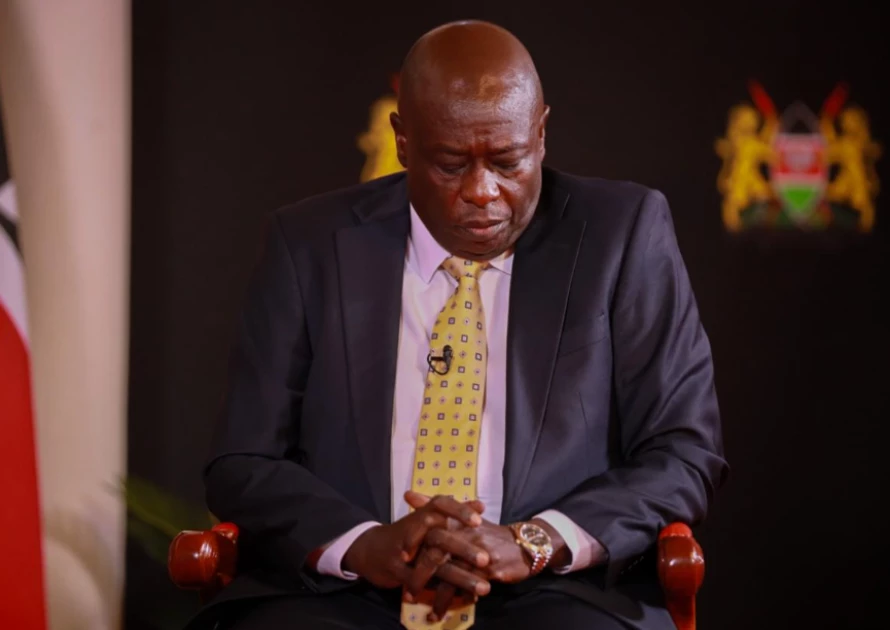Next steps in DP Gachagua's impeachment: What to expect

Deputy President Rigathi Gachagua during an exclusive interview with Citizen TV on September 20, 2024. PHOTO | JASE MWANGI | CITIZEN DIGITAL

Audio By Vocalize
The removal of the Deputy President under the 2010 constitution can occur for two main reasons: mental or physical incapacity, or through impeachment.
Deputy President Rigathi Gachagua now faces the latter. His impeachment is unprecedented under the 2010 constitution, grounded in Article 150 regarding removal from office of the deputy president.
Impeachment can be initiated for three main reasons: first, gross violation of a provision of the constitution or any other law; second, where there are serious reasons to believe that the deputy president has committed a crime under national or international law; or third, for gross misconduct.
Based on these grounds, the impeachment process follows Article 145, which outlines procedures for the impeachment of the president but also applies, with modifications, to the deputy president.
It begins with a motion initiated by a member of the National Assembly, supported by at least a third of all the members appending their signatures. The Speaker of the National Assembly will deliver a notice of motion, and the mover will elaborate on their grounds. Thereafter, a debate will be scheduled where MPs will vote. If supported by two-thirds, the motion sails through to the Senate.
National Assembly Speaker Moses Wetangula has directed that public participation be conducted on October 4, across all 47 counties, and consequently, DP Gachagua be given a fair hearing on October 8.
After the resolution to impeach the deputy president is reached, within two days the Speaker of the National Assembly informs the Speaker of the Senate, who within 7 days convenes a sitting. An 11-member committee may be formed to interrogate the charges.
The special committee shall investigate allegations levelled against the deputy president and report back to the Senate within ten days, either substantiating or dismissing the claims. The DP has the right to be represented or appear before the committee during the investigations.
If allegations are unsubstantiated, the process grinds to a halt; however, if they are upheld, the Senate will hear from the deputy president before voting on the charges.
If two-thirds of the Senate votes to uphold any impeachment charge, the deputy president will be removed from office.


Leave a Comment